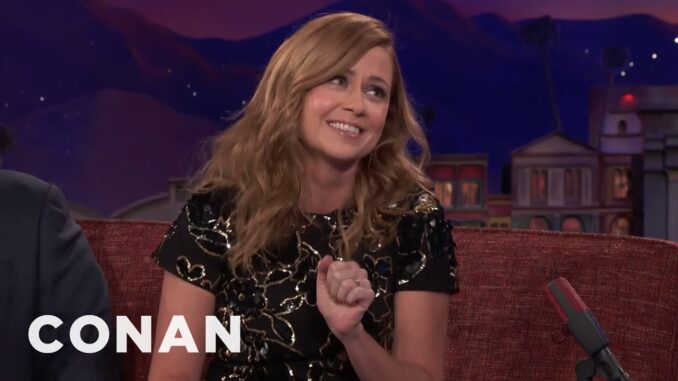
“`html
The enduring legacy of “The Office” is a testament to its relatable humor, endearing characters, and ultimately, its heartwarming portrayal of everyday life. For the actors involved, this legacy has brought both sustained recognition and a fascinating perspective on how new generations discover and embrace the show. Jenna Fischer, who played the iconic Pam Beesly, has frequently spoken about her surprise and delight at encountering young fans who weren’t even alive when the show originally aired. Her reaction, often characterized by a mix of disbelief and warmth, highlights the remarkable staying power of “The Office” and its ability to connect with audiences across time.
The Enduring Appeal of Dunder Mifflin
Several factors contribute to “The Office’s” continued relevance, especially amongst younger demographics. These factors help explain Jenna Fischer’s surprise at the show’s popularity with these fans.
- Relatable Characters: While the situations in “The Office” are often exaggerated for comedic effect, the characters themselves feel incredibly real. Everyone knows a Michael Scott-esque boss, a Jim Halpert-type prankster, or a Pam Beesly yearning for something more. These archetypes resonate across generations.
- Binge-Watching Culture: The rise of streaming services has made it easier than ever to discover and consume older shows. “The Office” is a perfect candidate for binge-watching, with its self-contained episodes and overarching storylines. This accessibility allows young viewers to immerse themselves in the world of Dunder Mifflin at their own pace.
- The Mockumentary Format: The mockumentary style gives “The Office” a sense of realism and intimacy. The direct address to the camera allows viewers to feel like they are part of the Dunder Mifflin family, witnessing the everyday drama and humor firsthand. This unique perspective keeps the show fresh and engaging.
- Memes and Social Media: “The Office” has become a meme factory, with countless quotes and scenes being shared and reinterpreted on social media platforms. This constant exposure keeps the show relevant in the cultural conversation and introduces it to new audiences.
Jenna Fischer’s reaction to these young fans often involves a genuine sense of amazement. She’s expressed surprise at how deeply these viewers connect with Pam, often discussing the character’s struggles and triumphs as if they were real-life events. This connection is a powerful testament to Fischer’s performance and the writers’ ability to create a character that feels both relatable and aspirational.
For Fischer and the rest of the cast, encountering these new generations of “Office” fans must be a surreal experience. It’s a reminder of the show’s lasting impact and its ability to transcend generations. It also reinforces the power of storytelling to connect people across time and cultural divides. The delight in her voice is a heartwarming reminder that art, in all its forms, can truly be timeless.
“`